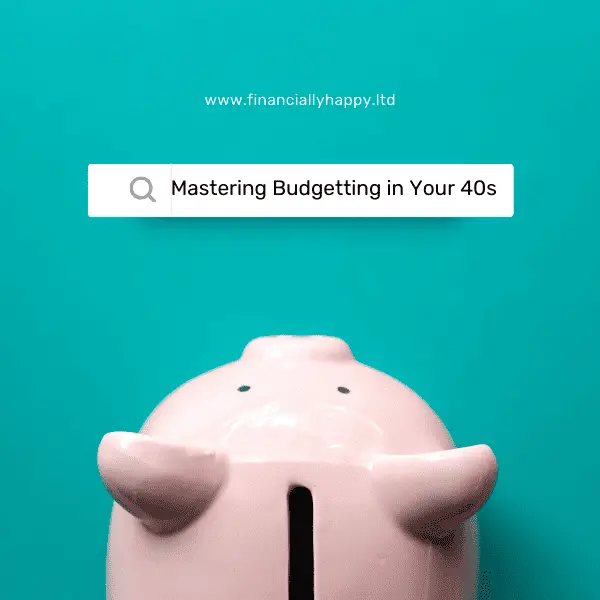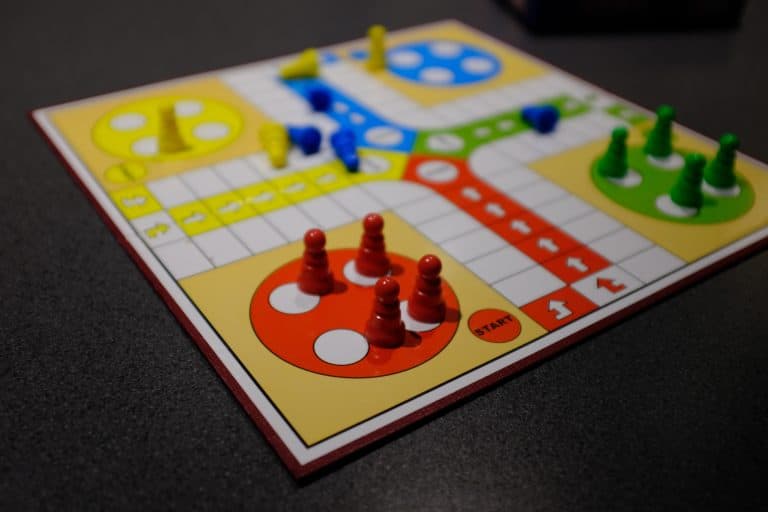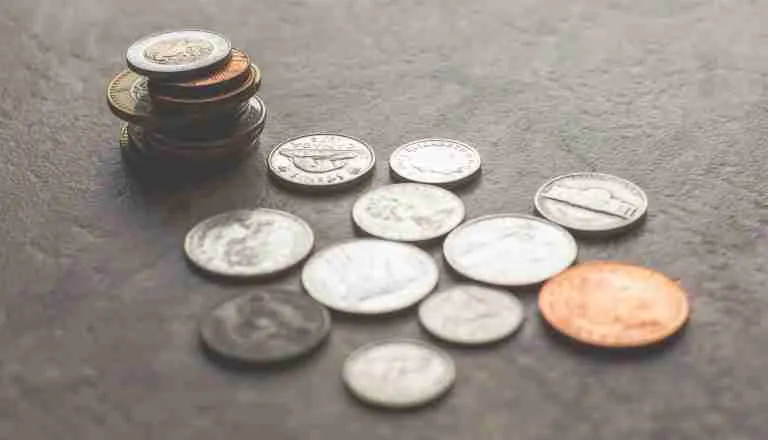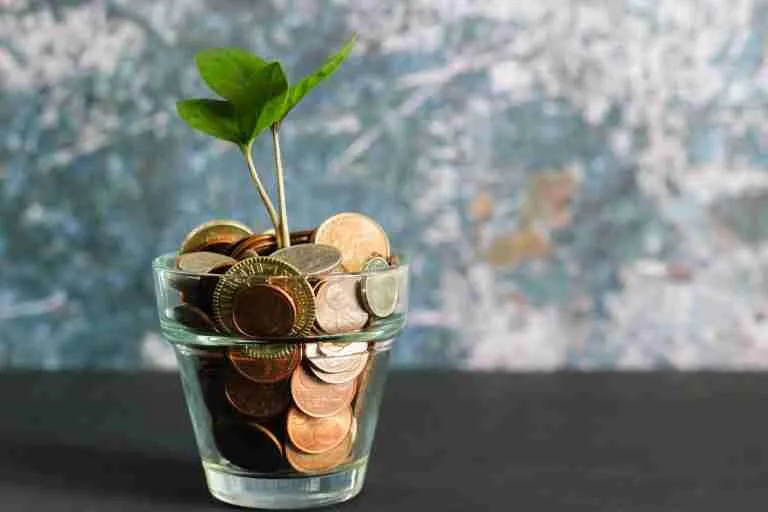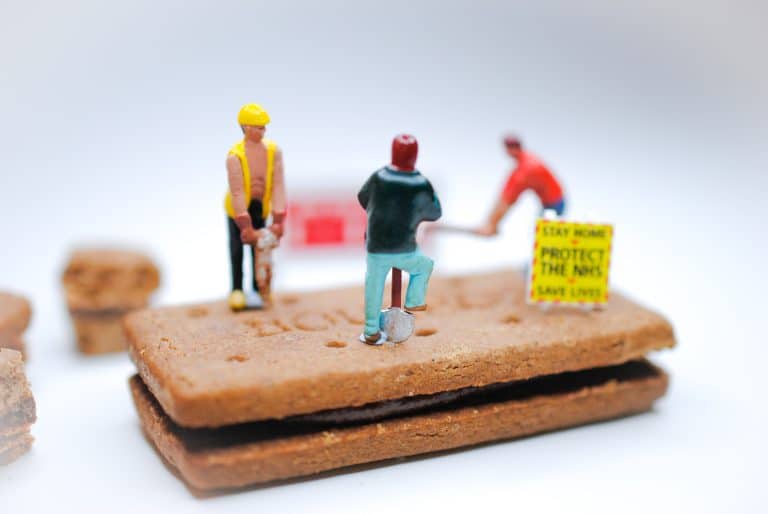How to save money fast. 13 ways to make it happen
How to save money fast. Start with why
So the first thing to think about when you want to save money fast is why you want to save money in the first place. Your why needs to be crystal clear and written down. You then need to understand your income and outgoings. You can trim the waste from here and look for more ways to earn money.
In the article, we will cover 13 ways to save money fast and start to build wealth.
| No. | Strategy | Description |
|---|---|---|
| 1 | Get a side hustle | There are plenty of ways to make extra money on the side, from freelancing to taking on odd jobs. |
| 2 | Cut back on your expenses | Evaluate your spending and see where you can slash costs without making major sacrifices. |
| 3 | Create a budget and stick to it | A budget is key to keeping your spending in check and ensuring you have enough money saved up. |
| 4 | Make a plan | A plan helps you stay focused and motivated when saving money. |
| 5 | Automate your finances | Automating your finances can help you save money without even trying. |
| 6 | Bank your spare change | This is an easy way to save money without making any big changes to your lifestyle. |
| 7 | Invest in yourself | Investing in yourself is one of the smartest things you can do when it comes to saving money. |
| 8 | Pay off debt | Debts can drain your finances, so focus on paying them off as quickly as possible. |
| 9 | Make savvy choices with your credit card | Choosing the right credit card can help you save money in the long run. Not using one might save you even more! |
| 10 | Use coupons and deals | This is a great way to save money on everyday purchases. |
| 11 | Invest in a good financial education | Learning about personal finance is one of the best things you can do for your money. |
| 12 | Stay disciplined | Saving money requires discipline and focus, so make sure you stay on track. |
| 13 | Have an emergency fund | An emergency fund is essential for unexpected expenses or tough times. Having one gives you peace of mind and helps you avoid debt. |
Table of Contents
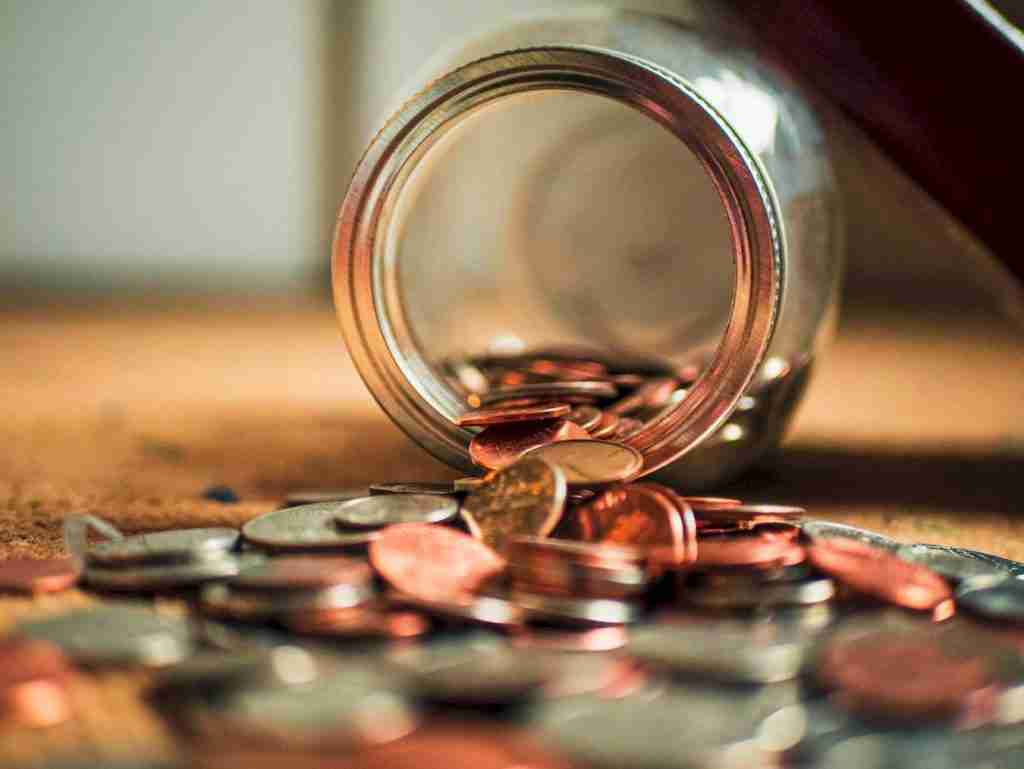
Ask yourself why you want to save
Drill down into your why ask yourself the five whys.
- Why am I saving?…. To get a deposit
- Why do you want a deposit? to buy a flat
- Why do you want a flat? because I’m sick of renting
- Why are you sick of renting? because I can’t make the place my own
- Why do you want to make the place your own? So I can put roots down and start a family/feel like a grown-up.
- O’right enough questions
Hopefully, this process will get you to your core reason,
which can often be more psychological than material, i.e. feelings of freedom, safety and independence over purely material needs.
Answering these questions may show you that what you thought
you wanted isn’t really what you want – maybe evening saving you money in the first place as you pivot to a more meaningful goal.
Your clear why will also help when distractions or temptations come your way. Oooh a new sale in my favourite store -you can ask
yourself will buying that coat with several pockets on get me closer or further away from my why?
The bigger and more compelling your why the easier it will be for you to stick it out. Once you have a clear why, how you might save more might also become clearer.
Why you want to save money, will help show you how to save money fast.
How to save money – Awareness is the key
With your WHY clearly defined, it may give you a few HOW’s immediately.
An easy way to look at how you might save more is to understand what you’re currently wasting spending your money on. There’s nothing like sunlight to disinfect your finances.
So the first task is to gather the data. Collect and collate your bank and credit card statements, paper receipts and cash spending amounts. Try and put this into date order as this will also give you an idea when you spend your money. Do you splurge at the beginning of the end of the month or every Friday at 2am?
If you have a banking app, a lot of this might be made very
easy for you if not collect the info over a few days and then set aside a
morning to review what you have gathered.
The next task will be to define your spending in a few ways.
Firstly separate a page into three columns.
| Needs (must have) | Wants (could almost live without or discretionary) | What’s going on here! |
| Rent | Lager | Stuff |
| Food | Duchy baked beans | Lunches out – every day !!? |
The first column is, needs or must-haves. You can’t live without stuff, food, rent, utilities, and some key social activities. It’s the stuff if it were taken away, it would make life painful and
difficult.
The second column is for wants. In this column, you can see what you choose to spend money on and what you might be able to cut back on.
This is discretionary, i.e., what you spend your money on after must-haves. All expenditure beyond what keeps you alive and a “reasonable” level of comfort – is more than enough.
It sounds harsh, but its anything that you don’t need – more clothes when you already have enough, more books when you haven’t read the ones you already have or more doughnuts when you have finished off a tray of 12 – ok bad example a day without doughnuts is like a day without sunshine.
The third and crucial column is the What on earth is going on here column? Where your money is running through your fingers like sand.
Could this be overkill, lunches every day at work, things you no longer use or are overpaying for, gym memberships, and subscriptions to Sky, Prime, and Netflix?
This table will call into question what you are spending your money on and if it’s potentially a waste essential – only you can decide this in light of your compelling why.
If you want to get an insight, hand this table to a friend and see what they think, all personal finance is personal, but often the cold light of day view from a trusted friend can help you reflect on where things can be out of kilter.
Of course, it can also end a close friendship when a friend says “you spend how much” – so be careful. Only ask for feedback if you’re prepared to take it – you don’t have to like it or agree with it; you’re just getting an external view.
How can I reduce my spending?
Now you have your spending out in the open, you can review where you can reduce, find it cheaper or cut it out altogether.
All these options will help you think through how you are using your money now and could you, would you, should you, make any changes.
There are probably going to be a few places where different habits could significantly reduce your outgoings. Is there anything you can do to change or adapt your habits to save money?
Could you make your lunches the night before and change how you walk to work to avoid the coffee shop, not shop when you’re hungry?
Can you cut your social media links that are pumping you
spending opportunities all the time – unsubscribe from sales and email alerts?
Could you reduce the number of nights you go out?
Start off eating at home and then go out? Or even have games nights in. You might be surprised by how many of your friends would like this as a change.
Have you checked if you’re on the cheapest or most appropriate tariff for utilities like electricity, gas, and broadband?
Many online comparison sites can review and suggest where you can make a saving: Cheap Energy Club – Compare Gas & Electricity and Save.
Can you get it cheaper?
Could you shop at cheaper places?
Could you try the downshift challenge by buying supermarket brands, could you try Aldi and Lidl, could you try more inexpensive ingredients? Remember the word is to try if you don’t like it go back to the way it was before.
Could you get it second hand – eBay and Amazon offer many things second hand that are perfectly fine. There are plenty of charity shops where you might be able to find what you are after – clothes, books and furniture amongst things.
Can you borrow it from the library, neighbour or friend?
Can you cut it out?
Do you need all those subscriptions? How much tv can you watch – does your work subscribe to these magazines so you can read them there, do you actually use the gym or will the park do?
Can you have a meat-free Monday, a drink-free or no eating-out lunches for a week? All or some of these might help you to start slowing down your spending and increase your saving.
The above is not supposed to dictate, more providing ideas of how to review what you are spending on, and if you cut it out, do you actually miss it.
Add friction to your spending
Can you unsubscribe or remove the autologin / prefilled passwords etc.? Adding resistance to your expense, hopefully giving you some time to think through the purchase.
Do you really need it, can you find it cheaper, what would happen if you didn’t buy it?
You can try the 30day challenge if you can delay buying something for 30 days and then still want it, then maybe you should get it.
If 30days sounds tough, try three days, 3 hours or at least 10 minutes. All of these are trying to beat the urge to spend money on things you don’t need.
Don’t you want to haggle?
One of my favourite films is Life of Brian. In one scene, Brian is in the market, trying to buy a beard for his wife.
He makes the cardinal sin of attempting to pay what the seller initially asks for. Immediately the seller says “wait a minute; we’re supposed to haggle”.
Haggling is not something many of us are used to.
Effectively asking the seller “is that your best price”. You never know you might get it a bit cheaper and
that’s more money in your pocket as opposed to theirs.
Budgets are sexy – honest.
Hmm, I know what you’re thinking, Alan you need to get out more. A budget will help you determine what’s coming in and going out. Importantly, it will help you review if your spending aligns with your WHY and where you thought it was going.
You can do this by collecting receipts and using spreadsheets, but I would suggest looking into the many free apps now available.
These will track and with a bit of initial work by categorising your spending so you can see real-time where your money is going.
The best part of budgeting is that your primary category should be paying yourself first.
Initially, this might sound a little strange, but you are often the last person to see the fruits of your labour. You might see your utilities, rent, food and miscellaneous all coming out of your bank account before you have seen any of it yourself.
The idea of paying yourself first means saving money at the beginning of the month, sending it to your savings account, rather than waiting to the end of the month to see what is left to send to your savings. Save and then live off what’s left. Not live and then save what is left.
Remember this is your money. How much of it do you want to give away and how much do you want to keep?
What can you get rid of to save money fast?
Could you sell any of your old or unused possessions to raise some savings?
eBay, Amazon, Facebook marketplace and many others offer the possibility of raising some money. There may also be nearly news sales near you to which you could take your unused clothes.
This is unlikely to make you rich, I guess that depends on how much and what your stuff is, but every little helps in getting you closer to your why.
13 ways to save money fast
1. Get a side hustle: There are plenty of ways to make extra money on the side, from freelancing to taking on odd jobs.
2. Cut back on your expenses: Evaluate your spending and see where you can slash costs without making major sacrifices.
3. Create a budget and stick to it: A budget is key to keeping your spending in check and ensuring you have enough money saved up.
4. Make a plan: A plan helps you stay focused and motivated when saving money.
5. Automate your finances: Automating your finances can help you save money without even trying.
6. Bank your spare change: This is an easy way to save money without making big lifestyle changes.
7. Invest in yourself: Investing in yourself is one of the smartest things you can do when it comes to saving money.
8. Pay off debt: Debts can drain your finances, so focus on paying them off as quickly as possible.
9. Make savvy choices with your credit card: Choosing the right credit card can help you save money in the long run. Not using one might save you even more!
10. Use coupons and deals: This is a great way to save money on everyday purchases.
11. Invest in a good financial education: Learning about personal finance is one of the best things you can do for your money.
12. Stay disciplined: Saving money requires discipline and focus, so make sure you stay on track.
13. Have an emergency fund: An emergency fund is essential for unexpected expenses or tough times. Having one gives you peace of mind and helps you avoid debt.
Saving money fast doesn’t have to be difficult. By following these simple tips, you can start saving money today!
FAQ: Tips on how to save money fast
What is the 30 day rule?
-Wait 30 days before buying the thing you want to buy. If after 30 days you still want it you can buy it.
-Chances are you will have forgotten about it and changed your mind after 30 days of cooling off.
How can I save £$1000 fast?
– Track your number and start cutting back on non-essentials
– Cut down, shop at cheaper places, haggle for cheaper utilities, internet and phone charges.
– Earn more, work more or create a side hustle.
– Automate your savings
How can I save £5000 fast?
Here are a few ideas for saving £5000 quickly
-Cut back on your expenses. Try to live within your means and find ways to save money on groceries, transportation, and other everyday costs.
-Sell some of your possessions. If you have things you don’t need or use, sell them online or in a garage sale to generate some extra cash.
-Invest in a side hustle. Earn extra money by working part-time or starting your own business.
-Start saving now. If you can save £500 per month, you’ll save £6000 in one year.
How can I save money in a day?
Try the Kakeibo method. Write down everything you spend in one book and review it every day, week and month. At the end of the month, review what went well and what needs to improve next week.
How can I save money on a low income?
Set some goals, picture what good looks like
Plug the leaks in your finances.
Track your finances with an app or the Kakeibo method.
Look for ways to create more money, something your good at, you have skills in, the world needs and people will pay you for.
How can I save money drastically?
If you’re looking to save money drastically, you can do a few things.
First, take a look at your spending habits and see where you can cut back. Perhaps you’re spending too much on eating out or buying unnecessary items.
Once you’ve identified your problem areas, try to make some changes to spend less and save more.
Another way to save money is to boost your income.
If you can find ways to bring in more money, whether, through a higher-paying job or side hustles, you’ll be in a much better position to save.
Additionally, automate your finances so that savings are automatically transferred from your checking account to your monthly savings account. This will help ensure that you don’t get in your own way.
Summary: How to save money fast
- Understand your reason for saving; your why?
- Start a budget; awareness will shed light on what is going on.
- Look at ways to reduce, cut down or cut out your spending
- Find things that you can sell
- Pay yourself first
Drop me a line if you would like to talk about how to save money fast or any of the ideas above and how you might manage your money. Get in touch
If you’ve made it this far, congratulations! You’re already taking steps towards a healthier financial future. But maybe you’re feeling a bit overwhelmed. Maybe the of budgeting, saving, and investing still makes you break out in a cold sweat. Don’t worry, you’re not alone, and help is available.
At Financially Happy Money Coaching, I understand money isn’t just about numbers. It’s about emotions, behaviours, and life choices. That’s why we’re here to help you take the stress out of money and build wealth that aligns with your values and lifestyle.
Whether you’re just starting out on your financial journey or you’re looking to take your finances to the next level, we’re here to guide you every step of the way. I’ll help you understand your financial behaviours, set realistic goals, and create a personalized plan to achieve those goals.
So, why wait? Start your journey towards financial happiness today. Remember, the best time to start was yesterday. The second best time is now.
Click here to schedule your consultation and let’s make your money work for you, not vice versa. 💪💰
Remember, financial freedom isn’t a destination; it’s a journey. And every journey is easier when you have a guide. So, let’s embark on this journey together and create a financially happy future. 🚀💸
📚 Financial Freedom Resources
- The Ultimate Guide To Building Your Savings to $100,000! 📘 is a transformative book that equips readers with principles, strategies, and the mindset 🧠 needed to reach a $100,000 savings goal 💰. It’s a journey towards financial freedom 🚀, challenging beliefs 🤔, embracing new habits 🔄, and overcoming obstacles 💪.
- How to Manage Your Finances: Your Guide to Financial Freedom 📘 is a comprehensive resource packed with practical advice on budgeting 💰, investing 📈, reducing debt 💳, and building wealth 💎. It’s an essential guide for anyone, novice or experienced, aiming to take control of their financial future and achieve financial independence 🚀.
Remember, self-study is a powerful tool for life and financial transformation. Happy reading! 🎉
📚 Financial Freedom Resources
- The Ultimate Guide To Building Your Savings to $100,000! 📘 is a transformative book that equips readers with principles, strategies, and the mindset 🧠 needed to reach a $100,000 savings goal 💰. It’s a journey towards financial freedom 🚀, challenging beliefs 🤔, embracing new habits 🔄, and overcoming obstacles 💪.
- How to Manage Your Finances: Your Guide to Financial Freedom 📘 is a comprehensive resource packed with practical advice on budgeting 💰, investing 📈, reducing debt 💳, and building wealth 💎. It’s an essential guide for anyone, novice or experienced, aiming to take control of their financial future and achieve financial independence 🚀.
- Mastering Budgeting in Your 40s: Your Guide to Financial Freedom 📘 is your essential roadmap to financial savvy. Packed with tips on budgeting 💰, investing 📈, and debt management 💳, it’s the perfect toolkit for anyone in their 40s looking to secure their financial future and sail towards independence 🚀.
Remember, self-study is a powerful tool for life and financial transformation. Happy reading! 🎉



